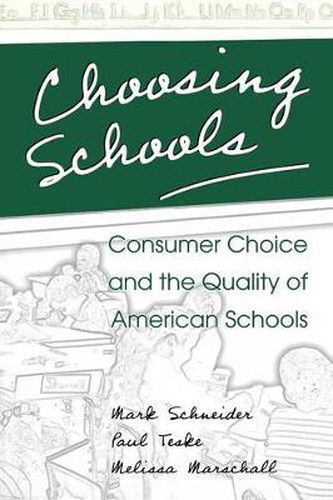Readings Newsletter
Become a Readings Member to make your shopping experience even easier.
Sign in or sign up for free!
You’re not far away from qualifying for FREE standard shipping within Australia
You’ve qualified for FREE standard shipping within Australia
The cart is loading…






School choice seeks to create a competitive arena in which public schools will attain academic excellence, encourage individual student performance, and achieve social balance. In debating the feasibility of this market approach to improving school systems, analysts have focused primarily on schools as suppliers of education, but an important question remains: Will parents be able to function as ‘smart consumers’ on behalf of their children? Here a highly respected team of social scientists provides extensive empirical evidence on how parents currently do make these choices. Drawn from four different types of school districts in New York City and suburban New Jersey, their findings not only stress the importance of parental decision-making and involvement to school performance but also clarify the issues of school choice in ways that bring much-needed balance to the ongoing debate.The authors analyse what parents value in education, how much they know about schools, how well they can match what they say they want in schools with what their children get, how satisfied they are with their children’s schools, and how their involvement in the schools is affected by the opportunity to choose. They discover, most notably, that low-income parents value education as much as, if not more than, high-income parents, but do not have access to the same quality of school information. This problem comes under sensitive, thorough scrutiny as do a host of other important topics, from school performance to segregation to children at risk of being left behind.
$9.00 standard shipping within Australia
FREE standard shipping within Australia for orders over $100.00
Express & International shipping calculated at checkout
School choice seeks to create a competitive arena in which public schools will attain academic excellence, encourage individual student performance, and achieve social balance. In debating the feasibility of this market approach to improving school systems, analysts have focused primarily on schools as suppliers of education, but an important question remains: Will parents be able to function as ‘smart consumers’ on behalf of their children? Here a highly respected team of social scientists provides extensive empirical evidence on how parents currently do make these choices. Drawn from four different types of school districts in New York City and suburban New Jersey, their findings not only stress the importance of parental decision-making and involvement to school performance but also clarify the issues of school choice in ways that bring much-needed balance to the ongoing debate.The authors analyse what parents value in education, how much they know about schools, how well they can match what they say they want in schools with what their children get, how satisfied they are with their children’s schools, and how their involvement in the schools is affected by the opportunity to choose. They discover, most notably, that low-income parents value education as much as, if not more than, high-income parents, but do not have access to the same quality of school information. This problem comes under sensitive, thorough scrutiny as do a host of other important topics, from school performance to segregation to children at risk of being left behind.